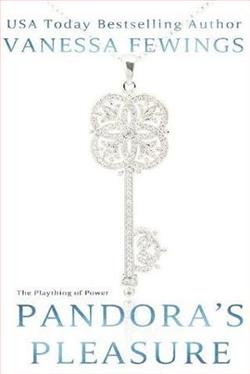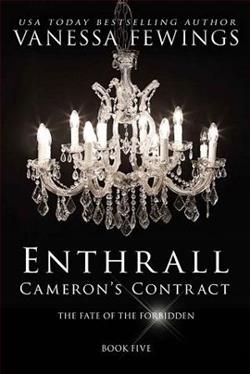Page 13 of Royal Love
“Becoming a father is about as significant as it gets,” I say with a humorless laugh.
“Are you afraid of fatherhood itself, or something specific related to it?”
The question hangs in the air, and I take my time answering it, wanting to be honest with her—and with myself.
“I’m afraid of losing my temper,” I finally admit, the words feeling like stones in my mouth. “My father…he wasn’t physically abusive, but his anger was legendary. Cold, calculated, devastating. He could cut you down with just his words and a look.” I lean forward, resting my elbows on my knees. “What if I’m like him? What if the war broke something in me that can’t be fixed? What if I’m holding our child and have a flashback? What if I?—”
“Tristan,” Dr. Merrick interrupts, using my name without title—surprising me with her directness. “You’re catastrophizing. Let’s back up and deal with what’s actually happening, not with what might happen.”
I take a deep breath, nodding. I didn’t expect such frankness in a first session, but perhaps that’s what I need.
“Have you told Amelia about these fears?”
“Not entirely. She knows about the nightmares, but not about my fear of turning into my father. Or worse.”
Dr. Merrick sets her notepad aside. “Why not?”
“Because she’s four months pregnant, and I don’t want to burden her with my issues. She has enough to deal with.”
“Do you think she’d see it as a burden? Or as her husband trusting her with his feelings?”
I don’t have an answer for that.
“What happened in the valley was tragic,” Dr. Merrick continues. “You were following orders in a combat situation with limited information. The fact that you still struggle with it shows your humanity, not your monstrosity.”
“But what if?—”
“Let me give you some practical tools for when you feel yourself slipping into those dark moments,” she says, redirecting me. “First, I want you to concentrate on what we call grounding techniques,” she explains, before continuing on. “When you feel yourself getting triggered, find five things you can see, four youcan touch, three you can hear, two you can smell, and one you can taste.”
I nod. Now that I know what it is, I’ve tried this before, and it does help sometimes.
“Second, I want you to create a physical reminder—something small you can carry with you that represents what you’re fighting for. Not as a king, but as a man. Something that reminds you of Amelia and your child.”
“Like what?”
“That’s for you to decide. Some people carry a photo, others a small token with significance. Whatever feels right to you.”
I think about it, already having an idea of what might work.
“Third, and perhaps most important, I want you to practice strategic retreats. When you feel your emotions becoming overwhelming, give yourself permission to step away briefly. Not to avoid the situation, but to regulate your response to it.”
“You want me to walk away when I’m angry?” The idea feels counterintuitive.
“Not permanently. Just long enough to regain control. Tell whoever you’re with—whether it’s Amelia or eventually your child—that you need a moment and then return when you’re calmer.”
I consider this. “My father never walked away. He’d just keep going until you broke.”
“And is that who you want to be?”
“No,” I say firmly. “It’s not.”
We spend the rest of the session discussing more strategies—journaling, specific breathing exercises, scheduling regular time for physical activity to burn off excess stress. By the time we finish, I feel both exhausted and strangely lighter.
“Would you like to schedule a regular time moving forward?” Dr. Merrick asks as we stand.
“Yes, please.” I pause, then add, “I appreciate your directness. It’s refreshing.”
She smiles. “That’s what you’re paying me for, Your Majesty. Not to coddle you, but to help you become the man you want to be.”















